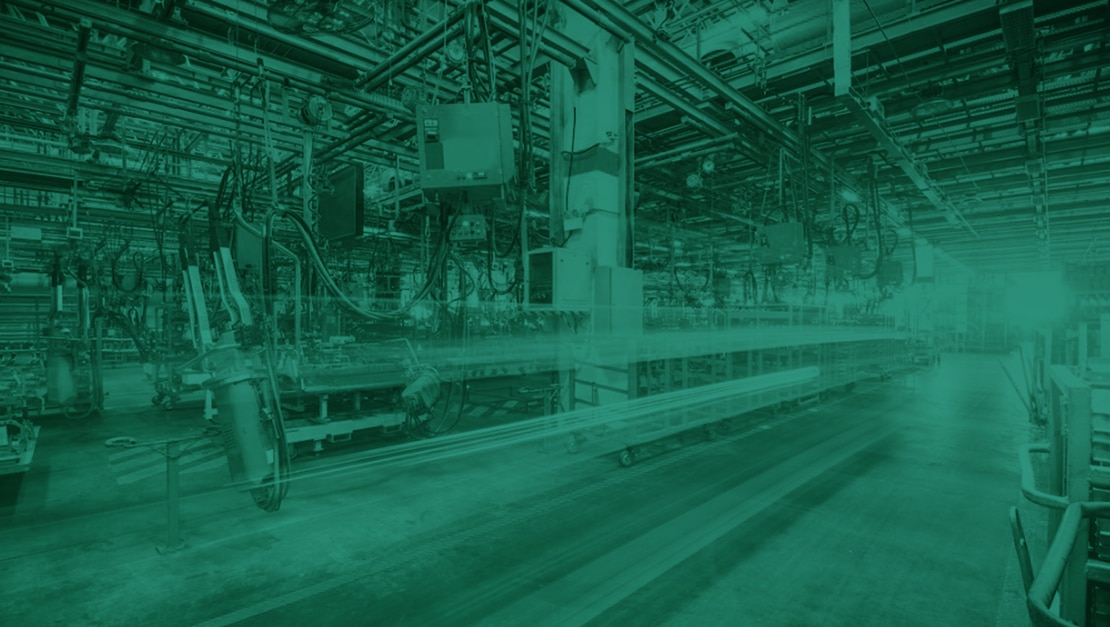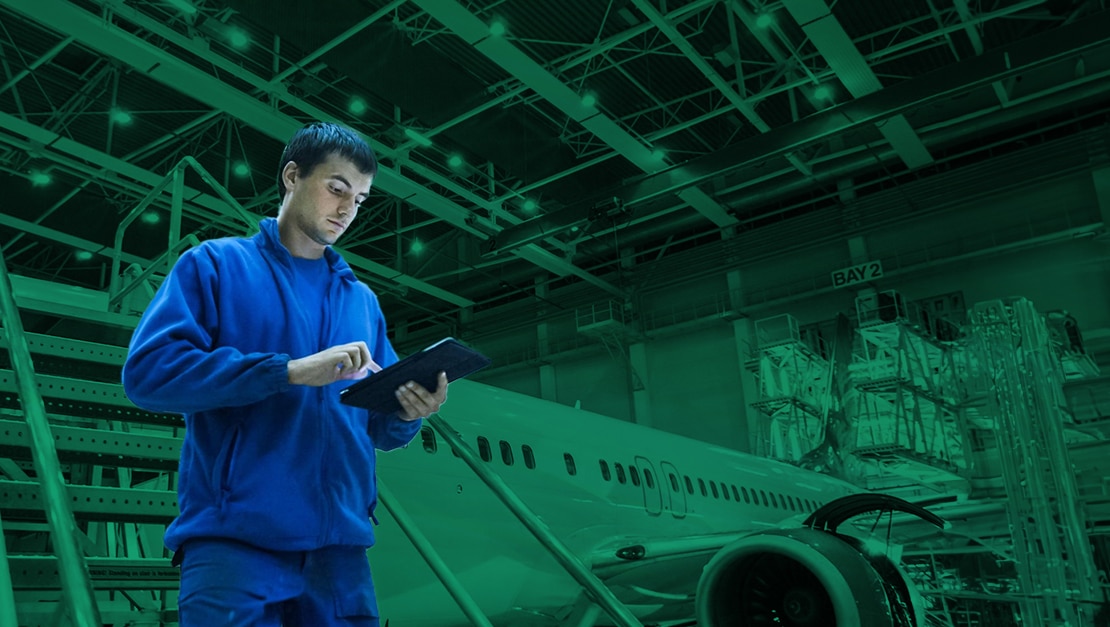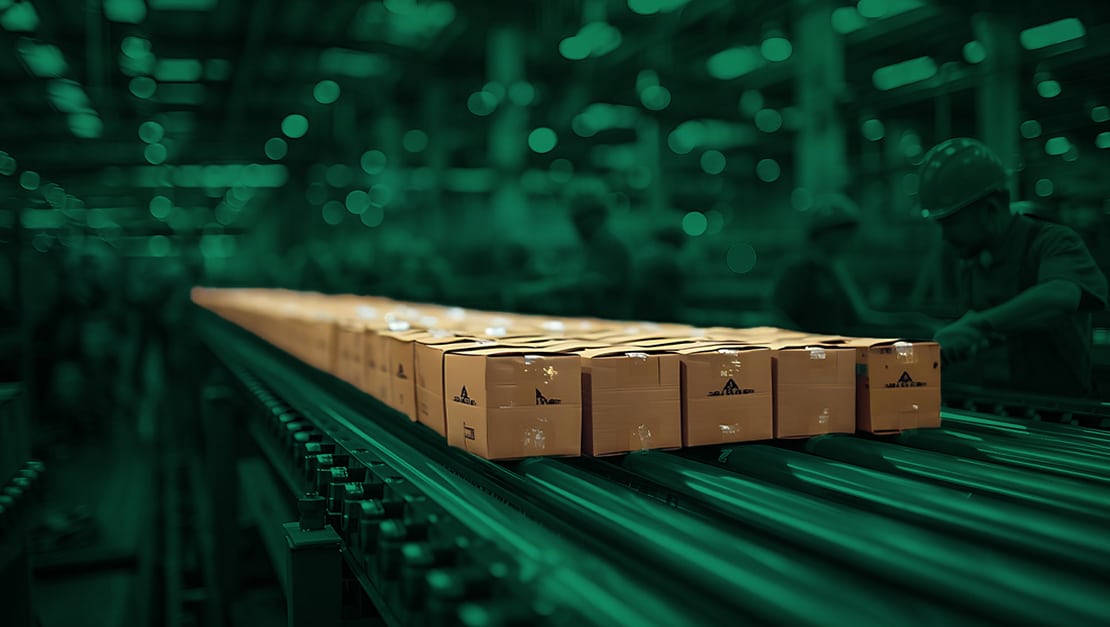The use of artificial intelligence (AI) in manufacturing paves the way for more safe and accurate manufacturing processes. In addition, AI helps manufacturers streamline processes and cut down on excess resources related to manual or repetitive tasks.
Over the years, manufacturing and AI has progressed from basic automation tools to more in-depth intelligence related to machine learning and adaptive systems. Through the collection of big data and analytics, AI’s role in manufacturing has taken on more significance, enabling predictive maintenance and data-driven decision-making.
This revolution in AI manufacturing technology is enabling manufacturers to become more productive and efficient in their processes. This blog post will look at AI technologies in manufacturing, their benefits and challenges, and examine how future trends and new technologies, like aiOla, can make an impact in the industry.
How is AI used in manufacturing?
AI technologies such as machine learning, natural language processing, computer vision, and others are used to make manufacturing more efficient and productive. AI is used in quality control, predictive maintenance, automated processes, and using AI-generated data and analytics to optimize operations.
Through the use of different AI technologies, certain manufacturing processes can be significantly improved. For example, natural language processing enhances human-machine interactions, streamlining processes like inventory management. Computer vision, another AI technology, ensures a higher level of quality control.
Additionally, AI-generated data and analytics systems can help manufacturers identify trends, predict demand, and optimize production schedules. These changes can help teams work more efficiently and boost production and innovation. Going over large quantities of data is labor-intensive for employees, and it would be almost impossible for them to glean meaningful insights properly, but this is something that AI systems can do a lot more quickly and accurately.
AI in Manufacturing Examples
AI has influenced how modern manufacturing plants operate. By leveraging a few key AI technologies, manufacturing companies can completely change the way they work, moving the burden of manual tasks away from employees while simultaneously making operations safer and more efficient. Let’s take a look at a few of the AI technologies employed in manufacturing today.
Machine Learning (ML)
Machine learning uses vast data sets to identify patterns, learn from data, and even make intelligent decisions. Machine learning algorithms are playing a central role in manufacturing applications today, often used in quality control, predictive maintenance, forecasting, and even production optimization. With this technology, manufacturers can make meaningful improvements to their processes, and as the ML adapts, it can make even stronger enhancements and further reduce downtime.
Computer Vision
Computer vision uses visual data to make interpretations and decisions. When used in manufacturing, it can work together with ML to further improve quality control while also detecting defects or out-of-place objects. Additionally, computer vision can be used to inspect items on a production line to ensure they adhere to quality standards, adding an extra level of security to manufacturing lines.
Robotics and Automation
Robots have long been used in manufacturing, but when paired with AI, they have the ability to accomplish a lot more than simply putting materials together. AI-powered robotics and automations can perform a range of tasks, from handling and assembling raw materials and more complex tasks requiring a high level of precision. AI also allows these systems to adapt to their environments, collaborate with humans, and automate tasks that would otherwise be repetitive, enabling employees to focus on quality and productivity while robotics handles physical manufacturing.
Natural Language Processing (NLP)
NLP systems empower machines with a deeper level of understanding, enabling them to interpret language almost as a human would. When applied to manufacturing, NLP can allow for smoother communication between man and machine, including voice-activated controls and the analysis of textual and vocal data to gain deeper insights into manufacturing processes. Additionally, some systems using NLP technology, as we’ll see later with aiOla, allow for more efficient maintenance and inspections using only the power of voice.
Applications of AI in Manufacturing Processes
No matter what product is being manufactured, certain processes are essential to every operation. Some of these processes add value, while others protect the product’s value by ensuring it’s up to standard. What’s clear is that AI in manufacturing is on pace to grow dramatically. It’s estimated that by 2032, the manufacturing’s AI market is expected to grow from $5 million to $68.3 million, representing a remarkable growth.
There are many AI use cases in manufacturing that make processes more efficient and reliable through the use of different technologies. Here’s a look at four essential manufacturing processes and their AI applications.
1. Predictive Maintenance
Maintenance is critical to ensure every element of a manufacturing chain and machinery is running as intended. Through the use of AI, this inspection process can be made a lot more efficient and reduce the amount of manual verifications needed. ML models can predict when machinery is likely to fail based on AI algorithms, alerting teams to perform maintenance before any disruption to operations. AI-drive predictive maintenance ensures overall equipment efficiency while also ensuring the manufacturing process is more cost-effective.
2. Quality Control and Defect Detection
AI is instrumental in quality control, ensuring defects are detected early using technology like computer vision. With AI, the quality control procedure can be largely automated using image recognition algorithms to detect anomalies with greater accuracy than humans alone. Since AI systems can process huge amounts of data very quickly, AI speeds up quality control inspections while also minimizing risks related to human error. For example, in the food manufacturing industry, AI is used to boost quality assurance by automating inspections, verifying the safety of ingredients, and monitoring stored food products.
3. Automated Production
AI helps transform traditional manufacturing systems into ones that are both smart and adaptive. Through ML, workflows can be optimized through the use of data, adjusting for different factors in real time. Guided by AI, robotics can execute tasks with a high level of precision, automating manufacturing line tasks to increase productivity. Since these systems learn through data, they are also highly adaptable, meaning AI can often self-learn to make automation processes dynamic in a changing manufacturing environment.
4. Supply Chain Optimization
Supply chain management is critical to a successful manufacturing process, and any disruptions to it can cause heavy delays and even a dent in a company’s reputation. AI has changed the way manufacturers approach supply chain optimization by using tools like predictive analytics to forecast demand and improve the management of inventory and other factors. Through the analysis of market trends, historical data, and even external factors, AI systems can better ensure the availability of inventory and visibility of the supply chain. With AI at the helm of supply chain optimization, manufacturers can make smarter decisions in real time that correspond more accurately to demand, logistics, and supplier needs.
AI Manufacturing’s Benefits
The advantages of using AI extend far beyond its ability to reduce the reliance on manual and repetitive tasks. While this does make all the difference in manufacturing, it’s not the only reason to apply AI systems to various points of the manufacturing process. According to a survey by Deloitte, 93% of companies believe that AI will help manufacturers drive growth and innovation, leading to many benefits in the field. Let’s take a quick look at a few ways that AI can be an asset to manufacturing companies.
- Increased efficiency and productivity: AI helps companies streamline and optimize processes, creating quicker production cycles and reducing downtime. Through AI-powered automations, time-consuming tasks are taken care of, allowing employees to focus on more complex or strategic aspects of manufacturing.
- Improved quality and consistency: AI technologies make inspections faster and more accurate while ensuring products meet quality standards. AI-driven systems used to identify production variations enhance the overall quality of a manufacturing line.
- Cost savings: By using AI in predictive maintenance, manufacturers can benefit from significant cost savings by preventing unplanned downtime, emergency repairs, or machinery malfunctions. Addressing issues before they become widespread failures minimizes interruptions and saves on various costs.
- Enhanced safety: When working alongside human operators, AI systems and robotics can make work safer for everyone on the manufacturing floor. Predictive analytics can help prevent workplace accidents, and by reducing the need for humans in repetitive tasks, there’s less opportunity for accidents or injuries.
- Generative design: According to a study by McKinsey, when used in manufacturing, Generative AI can be used to select materials more efficiently, leading to cost reductions. It can also help companies generate several design options for different products, leading to more innovative designs, reduced material waste, and more efficient design processes.
Challenges and Considerations in AI Manufacturing Implementation
As with any new technology you’re introducing to your system, AI takes some careful consideration when it comes to implementation. AI implementation in manufacturing isn’t without its challenges. However, careful planning and consideration of both internal and external factors can make AI implementation smoother and less disruptive. Some of the core considerations to factor into your AI manufacturing implementation include:
- Integration with existing systems: Legacy manufacturing systems may not be accommodating to advanced AI technologies. Before implementing AI into your workflows, assess the compatibility of new solutions with your existing tech stack to ensure you develop strategies to bridge the gap and avoid disruptions.
- Workforce reskilling: New technologies need new skills. When it comes to AI systems, organizations need to implement comprehensive training programs to ensure the workforce is prepared for the changes that come with implementation. Make sure to keep communication open and transparent throughout this process.
- Data security and privacy: As AI heavily relies on data sets, concerns about security and privacy arise. To ensure data integrity and prevent breaches or unauthorized access, manufacturers must implement new cybersecurity measures and access controls. Compliance with data regulations can be complex but is of paramount importance.
- Ethical considerations: AI ethical considerations related to trustworthiness and bias need to be addressed. It’s important that all decisions surrounding AI implementation are transparent, and that organizations establish clear ethical guidelines beforehand to ensure the technology is always used in a way that aligns with company values.
Unleash the Power of Speech AI in Manufacturing with aiOla
AI tools come in many different formats. Some connect to existing systems to parse textual data, while some systems rely on visuals to improve the manufacturing process. With aiOla, data is gathered through speech, an otherwise lost source of information that can help improve manufacturing floor processes and improve decision-making.
With aiOla’s AI-powered speech technology, all employees need to do is speak normally in any language, accent, or industry-specific jargon to trigger actions and collect data. aiOla uses cutting-edge speech technology to pull essential information from speech, turning language into action and automation.
aiOla enables manufacturing teams to speed up inspections by turning manual processes into speech-based procedures, drastically reducing the time and resources needed. This helps provide real-time insights into faulty equipment while also lowering the possibility of human error. The best part is that this technology can be harnessed completely hands-free and with little to no learning curve, making it simple to implement and easy for your workforce to adopt.
AI and the Future of Manufacturing
As technology advances at a quick pace, there’s no denying that AI will become one of the major trends in AI manufacturing. With systems and algorithms becoming more precise each day, the systems we use today will become more refined and accurate, reflecting new technological advancements. Looking ahead, we can expect to see advancements in ML and predictive analytics, the integration of AI in other workflows like design and prototyping, and the use of AI for sustainable manufacturing.
When it comes to using and implementing AI efficiently in manufacturing processes, aiOla’s voice-powered platform stands out among the rest. By harnessing the power of your voice, aiOla can streamline operations, automate workflows, and help organizations gather mission-critical data to make more informed business decisions.
Book a demo with one of our AI experts to see how aiOla can help make your manufacturing business more efficient, productive, and safe.








